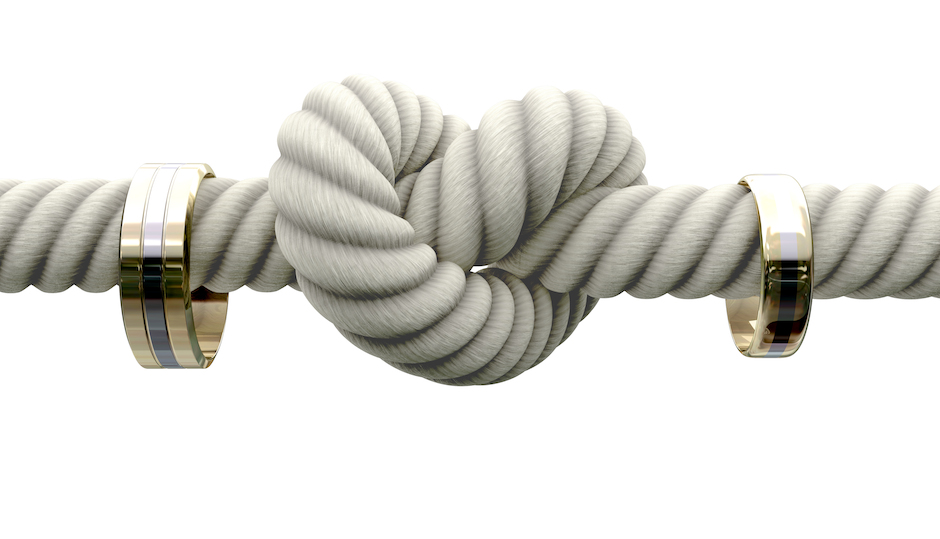Au Contraire, Marriage is For You
First thing’s first: I’m sure that Seth Adam Smith is a really, really nice guy. If you’ve seen the pictures on his website and read his writing, it’s clear that Smith has got a kind of earnest, freshly scrubbed All-American handsomeness, along with an intense desire to be a Good Man that one finds in really popular youth pastors. It’s a combination of qualities that is winning and should take him far in life.
But man, I cannot stand his most popular piece of writing. You’ve probably read it. It’s a blog post titled “Marriage Isn’t For You,” and in the last week it’s been linked in a million Facebook timelines, been featured on the Today show, and generally been applauded as a font of wisdom about what marriage should be.
Only: It’s not.
Let’s back up. The story behind the blog post is that Smith and his wife have been married less than two years. A recent fight forced Smith to realize that he’d been living selfishly within the marriage, which in turn led to a recollection of advice he received from his father on the eve of his wedding.
With a knowing smile he said, “Seth, you’re being totally selfish. So I’m going to make this really simple: Marriage isn’t for you. You don’t marry to make yourself happy, you marry to make someone else happy. More than that, your marriage isn’t for yourself, you’re marrying for a family. Not just for the in-laws and all of that nonsense, but for your future children. Who do you want to help you raise them? Who do you want to influence them? Marriage isn’t for you. It’s not about you. Marriage is about the person you married.”
Which, ick.
No. That’s not fair. Smith is offering up sincerity and my treacle-meter is getting in the way. So let’s try this again: What’s appealing about this advice, and Smith’s ruminations about it, is that it is very nearly right. Certainly, one shouldn’t expect to get married and then live one’s life selfishly, as though they owe their partner nothing.
But neither should one abase oneself to one’s partner—marriage is not the Borg. You shouldn’t have to strip away your own identity and ambitions and even thoughts of happiness to share a life and family with the person of your choosing. As described by Smith, you can find your fulfillment in marriage only through an act of self-destruction. That sounds uninviting at best, and just plain wrong at worst.
Understand: I’ve been married for seven years now. I do not hold myself out as an expert on the institution. And I don’t want my words to get in the way of people persuaded by Smith to work harder and be better in their own marriages. (I also write, I hope, humbly, knowing that discussing your marriage for public consumption is an invitation to trouble.) Every day my wife and I share together involves work, some self-sacrifice, and the occasional discovery that we’ve been doing it wrong, on both our parts.
That said: I still reject Smith’s binary choice. My marriage isn’t about the person I married. It’s not about me, either. It’s about us. It’s about the partnership itself, which is both of us and bigger than both of us, and it’s about the things we can accomplish together as partners.
Occasionally, yes, that means you sacrifice sometimes. Same for your spouse. But more often than you’d expect—at least, if you’re as lucky as I’ve been—it means that you create unexpected possibilities with each other. Without each other, it’s fair to say, neither my wife nor I would’ve ended up in Philadelphia. Neither of us would have cobbled together the quirky careers that we have. We certainly wouldn’t have our beautiful son.
I benefit from all of these things, and I think my wife does, too. Marriage isn’t for me? Well it’s not not for me, either. It’s for me and my wife, Seth and his wife, you and the person you’ve chosen. It’s about all of us, and the happiness we build together. Rise from your knees, married folks; go hand-in-hand together towards the future.



